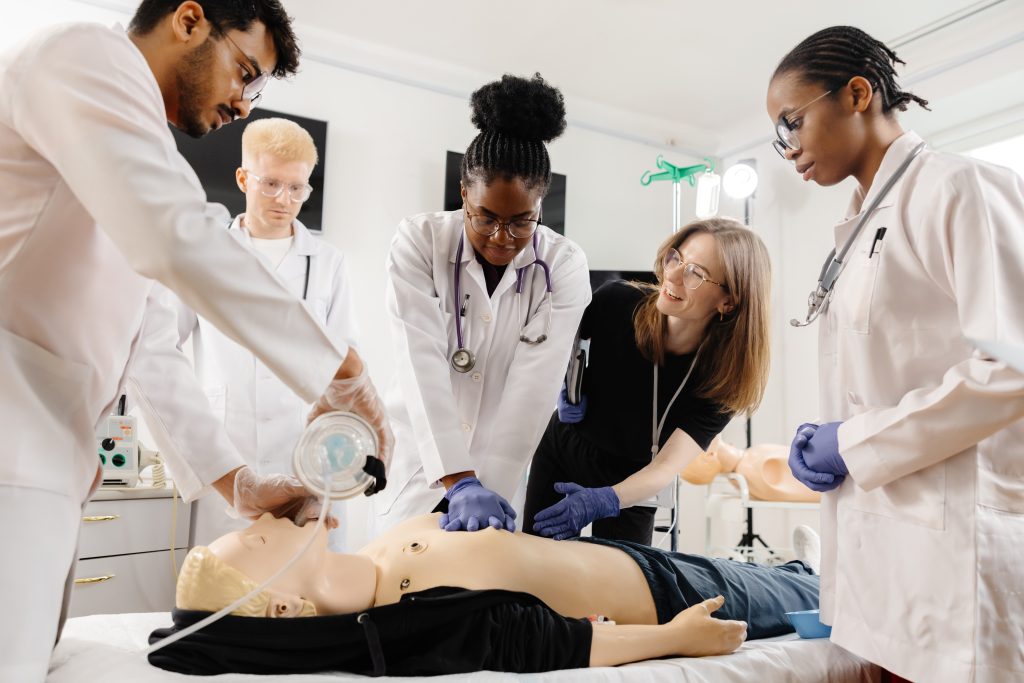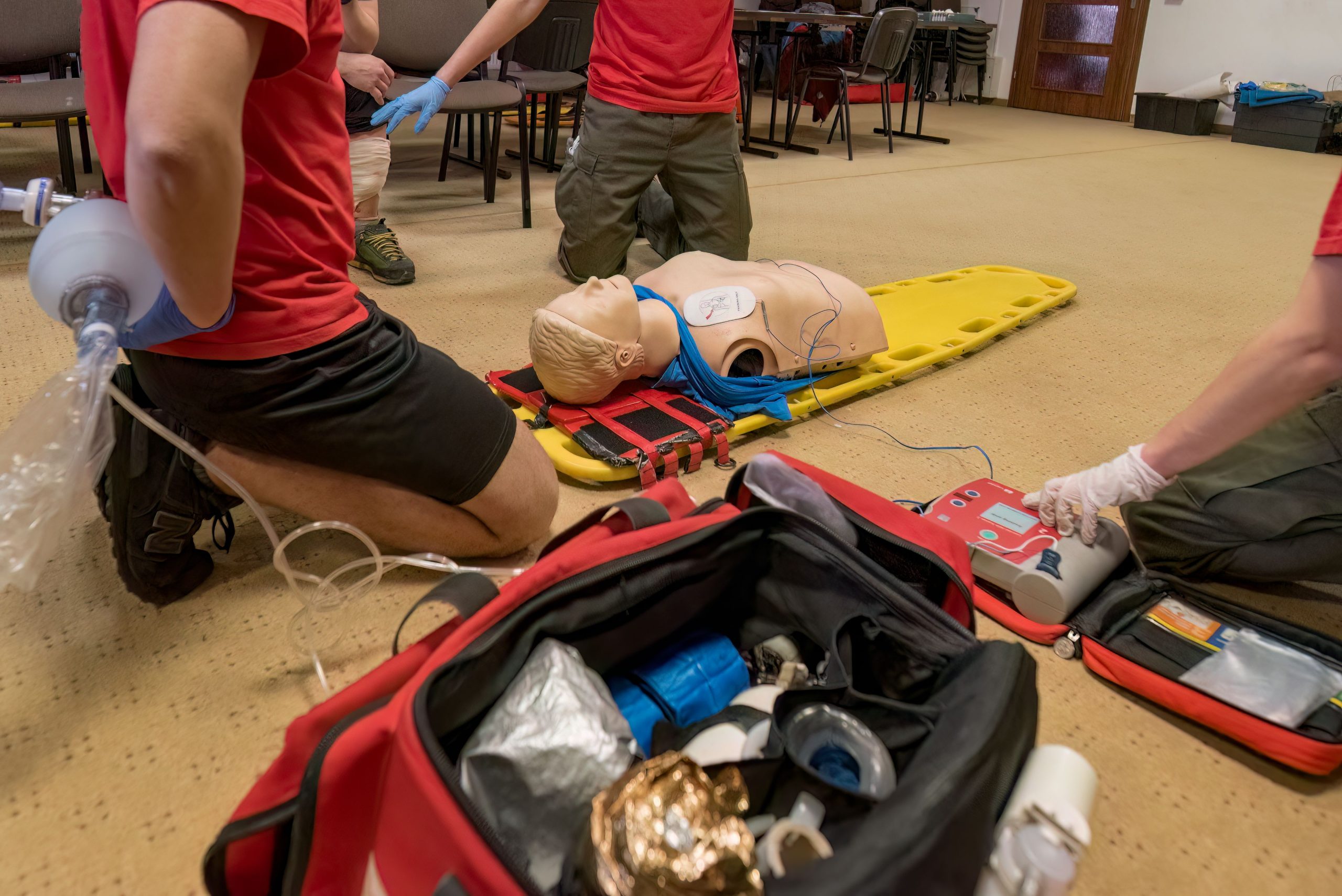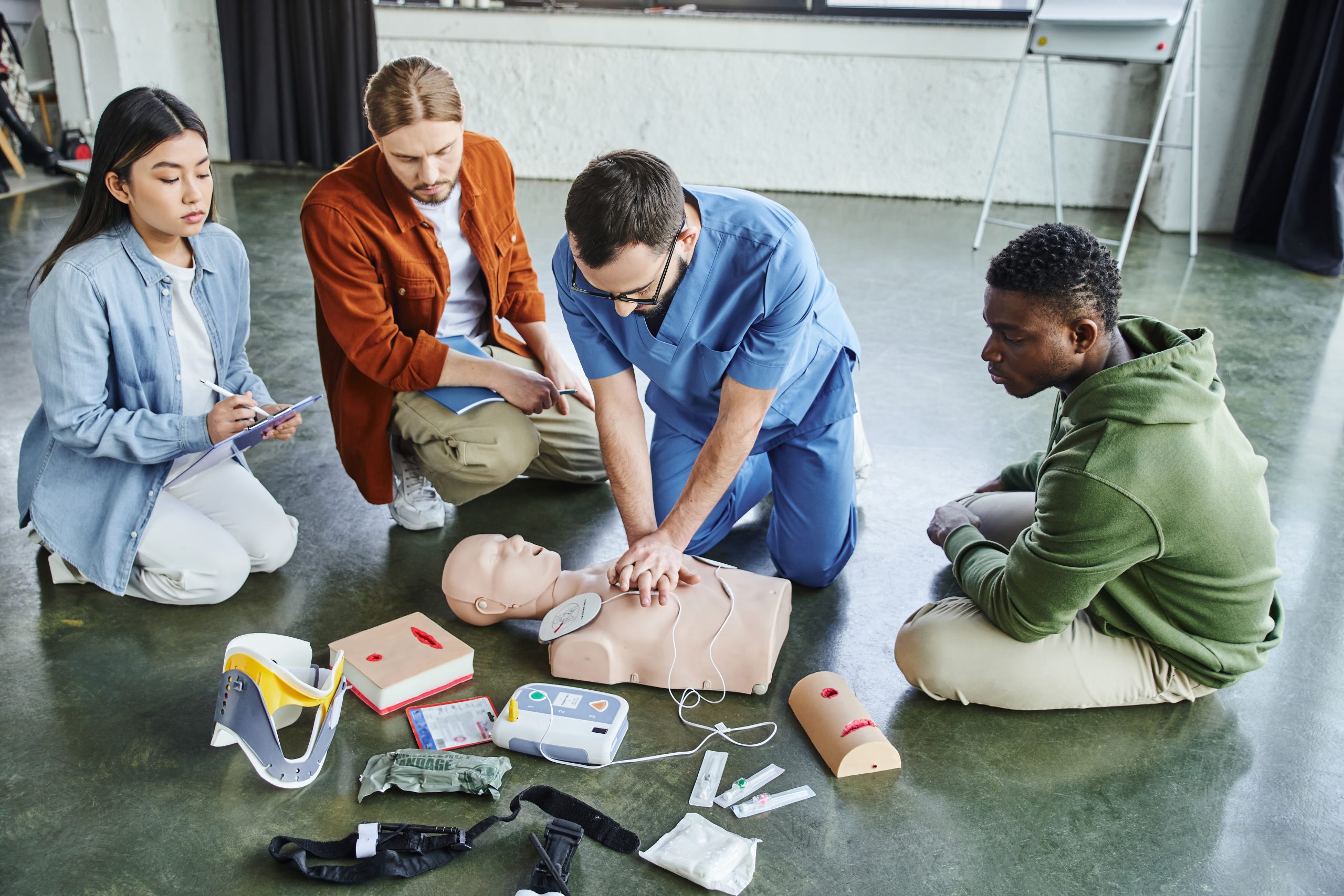
Houston is a city known for its diversity and dynamism—but it’s also a city that cares about safety. Whether you’re applying for a job in healthcare, teaching, or even oil and gas, chances are high that CPR certification is more than just a nice-to-have—it’s mandatory. If you’ve ever Googled “CPR Classes Near Me,” this blog is your ultimate guide to understanding which local organizations require CPR certification and why it’s essential for your career or community involvement.
If you’re in Houston’s healthcare ecosystem, CPR certification isn’t optional—it’s critical. Hospitals like Houston Methodist, MD Anderson Cancer Center, and Memorial Hermann require that all clinical staff, from doctors to phlebotomists, have up-to-date Basic Life Support (BLS) certification.
Even support roles like patient transporters and front-desk personnel are increasingly required to know CPR, reflecting the sector’s proactive stance on patient safety. Some clinics even require Advanced Cardiovascular Life Support (ACLS) for nurses in intensive care units.
Popular roles that require CPR:
Did you know? Encompass Health in Pearland lists CPR as a job requirement for therapy techs!

Schools have always been high-priority safety zones, and CPR training has become part of many educators’ job descriptions. The Houston Independent School District (HISD) has a strong focus on AED accessibility and CPR training, especially following incidents that exposed safety gaps in past years.
Pediatric CPR is especially vital for childcare workers, school nurses, and PE teachers. Certification is often required by:
Whether you’re chaperoning a field trip or teaching second grade, knowing how to respond to emergencies saves lives—and jobs.
Firefighters, police officers, and EMTs are often the first to arrive on scene during emergencies. CPR certification, including First Aid and AED training, is a legal requirement for these roles. Houston’s emergency services departments, including HFD (Houston Fire Department) and local EMS teams, have rigorous ongoing training protocols to ensure their personnel stay current with AHA (American Heart Association) guidelines.
Common CPR-required roles in this sector:
Houston’s economy is powered by massive energy companies, bustling ports, and a thriving manufacturing scene. Many of these companies adhere to OSHA (Occupational Safety and Health Administration) requirements, which recommend that at least one employee per shift be certified in CPR and First Aid.
Industries like oil & gas and construction often employ Safety Coordinators whose job it is to maintain compliance—including CPR readiness.
Key roles requiring CPR training:
Companies like the Gulf Coast Regional Blood Center even make annual CPR training a mandatory part of their onboarding and continuing education processes.

In Houston, nonprofits like The Junior League of Houston offer free CPR training to help build a culture of preparedness. Churches, sports leagues, youth programs, and volunteer organizations also frequently require their leaders and volunteers to be trained in basic CPR.
Universities like University of Houston offer CPR training for both employees and students, often free or at a discounted rate.
CPR training here is less about compliance and more about empowerment—making lifesaving skills accessible to everyone.
Who usually needs it:
If you’re now realizing you fall into one (or more!) of these categories, you’re probably wondering: Where should I go to get certified?
That’s where CPR Classes Near Me comes in.
We provide:
We cater to your schedule and your specific certification needs. Whether you’re in healthcare, education, or industry, we’ll help you get certified quickly and affordably.
CPR certification is no longer reserved for healthcare providers or first responders. In Houston, it’s become a universal job skill, opening doors and protecting lives across sectors. With so many local organizations requiring CPR training, there’s never been a better time to get certified.
Don’t wait for an emergency to realize its importance. Contact CPR Classes Near Me today and take the first step toward becoming CPR certified. Your future—and someone else’s—might depend on it.
Our primary goal is to ensure that you receive a top-quality CPR/First Aid certification. With our in-person training in Austin, you can learn CPR and BLS in just one class. Your presence is all that’s needed to continue with your lesson! During your session, you will complete all the live-training components necessary to ensure you receive your AHA Healthcare Provider certification card.
Our CPR Classes in Austin are discounted to $59.95 (saving you $20), and our CPR + First Aid Class is offered at $79.95 (also saving you $20). When looking for CPR Classes, ensure to check for the American Heart Association seal. Other sites might seem cheaper but frequently lack the official training credentials demanded by employers.
Upon successful completion of the course, you will obtain a CPR certification that is valid for two years. The AHA CPR certification is recognized with the highest acceptance rate among employers nationwide.
Indeed! Enroll in any CPR Certification Austin BLS course to extend your certification for an additional two years. The in-person BLS course and the Renewal Class are identical.
Anyone capable of completing the course independently should consider pursuing CPR training and CPR Certification. There is no minimum age restriction for obtaining a CPR certification in Austin through the American Heart Association (AHA)..
CPR training needs to be carried out in person to guarantee its effectiveness. Our experienced instructors offer an engaging and dynamic learning experience. Typically, employers do not recognize CPR certifications that are obtained solely through online courses.
All authorized American Heart Association training centers are obligated to display the entire video. After a three-hour session with CPR Classes Near Me Austin, your BLS CPR eCard will be promptly issued by the instructor on the same day!